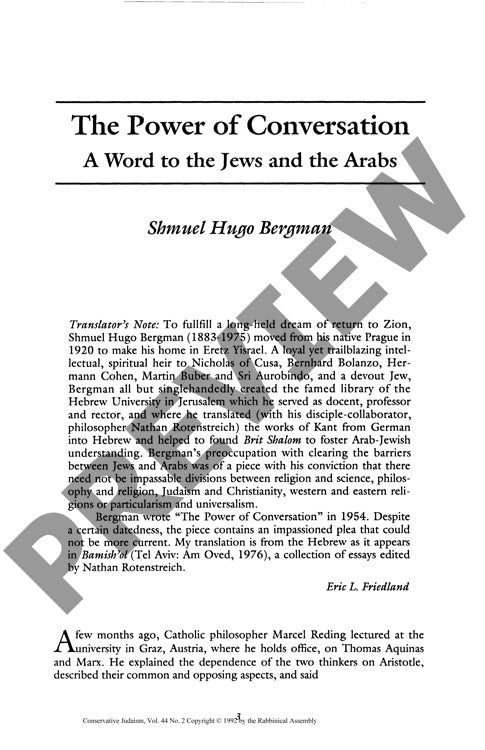A Word to the Jews and the Arabs
Couldn't load pickup availability
In 1954, as Arab-Jewish tensions escalated in the Middle East, philosopher Shmuel Hugo Bergman made an unconventional plea for dialogue in his essay "The Power of Conversation." A Prague-born Jewish intellectual who had emigrated to Palestine in 1920, Bergman challenged the prevailing rhetoric of violence by proposing that meaningful conversation could bridge seemingly insurmountable divides. Drawing parallels with Catholic-Communist philosophical discourse and Christian-Muslim cooperation initiatives, he demonstrated how ideologically opposed groups could engage in productive dialogue. Central to Bergman's argument was Albert Einstein's 1930 correspondence with the Arab newspaper Falastin, which had proposed a joint Jewish-Arab commission for direct negotiation, bypassing British mandatory authorities. Bergman identified shared monotheistic beliefs as potential common ground for reconciliation, while acknowledging the apparent idealism of his position in the wake of the Holocaust and mounting regional conflict. His analysis culminates in a focus on divided Jerusalem as a symbolic starting point for renewed interfaith dialogue, arguing that intellectuals from both communities bore a moral responsibility to foster conditions for peaceful coexistence.

More Information
-
Physical Description
-
Publication Information
Published 1992
ISBN
-
Publication Credits
Shmuel Bergman

